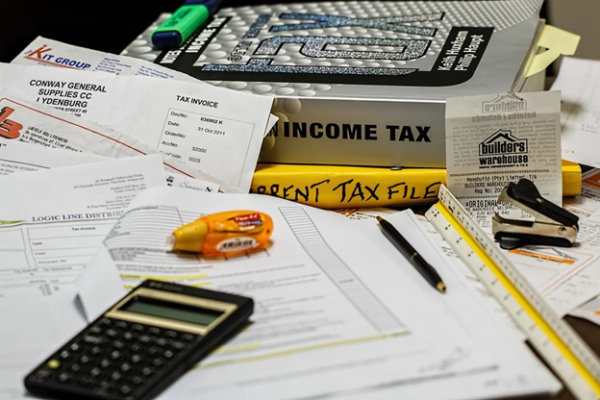Nobody likes paying taxes, it’s just a fact of life that you have to deal with. But are you paying too much? Taxes can get very complicated, especially if you file your own tax return, so people often make mistakes that cost them a lot of money. Unless you are a financial expert, there are probably things that you don’t understand about the tax system and simple mistakes could increase the amount of tax that you pay in a big way. If you want to save yourself some money next year, make sure to avoid these common tax mistakes.

Not Checking Your Tax Code
Everybody has their own tax code which tells the government how much tax that person needs to pay based on their earnings. In most cases, your tax code will be correct and you will be paying the right amount. However, the taxman makes mistakes sometimes and puts people on the wrong tax code. This can cause you problems in one of two ways. Firstly, you might be paying way more than you need to and even though you will get a tax rebate eventually, you will still be out of pocket in the short term. On the other hand, you might be paying a lot less than you should be, which means that you will get a huge tax bill once the government realizes their mistake. It’s important that you double check your tax code when you start a new job to make sure that you are paying the right amount of tax.
Not Claiming Your Tax Rebate
If you are on the wrong tax code or you overpay tax for any other reason, you can claim that extra money back as a tax rebate. But you will not always be notified about tax rebates and many people don’t realize that they have unclaimed money. It’s important that you check whether you have a tax rebate or not and consider working with an accountant to claim back as much tax as possible.
Filing Your Tax Return Late
If you are self employed and you need to file your own tax return, don’t leave it until the last minute. If you miss the deadline (31st October for paper returns and 31st January online), you will have to pay fines on top of your normal tax bill. Even if you file just before the deadline, this can still leave you in trouble because the deadline for payments is also 31st January. If you only file your return the day before, you will have to come up with the money right away and that can be a struggle if you have a big tax bill. It’s best to file as early as possible so you can get your finances in order and pay the bill comfortably.
Forgetting About Property Taxes
If you own a commercial property, there are some significant taxes that you have to pay on it, but people often forget about this until they start filing their taxes. When buying a property of any kind, you need to pay stamp duty. If you have an investment property that you rent out, you will need to pay taxes on all of the money that you earned from it. When you are managing your finances, it’s important that you remember all of these property taxes so you don’t get a big shock when you get your tax bill for the year.
Managing Taxes Separately From Your Partner
If you are married or in a long term relationship, it’s important that you team up on your taxes because you can save some money. For example, if you have investments, you should transfer them into the name of whoever pays the least tax. If one of you is in a much lower tax bracket, this is a great way to save a lot of money.
If you are married, you may qualify for marriage allowance, which allows you to transfer some of your tax free allowance to your partner. However, this won’t be automatically applied and a lot of people don’t even realize that they could be saving money. Before filing your taxes, it’s so important that you check whether you are eligible for any allowances and reductions because you could be paying way more than you need to.
A lot of people make these simple mistakes which mean that they’re paying far more tax than they should be. But if you can avoid the same pitfalls, you can save a lot of money on tax.

